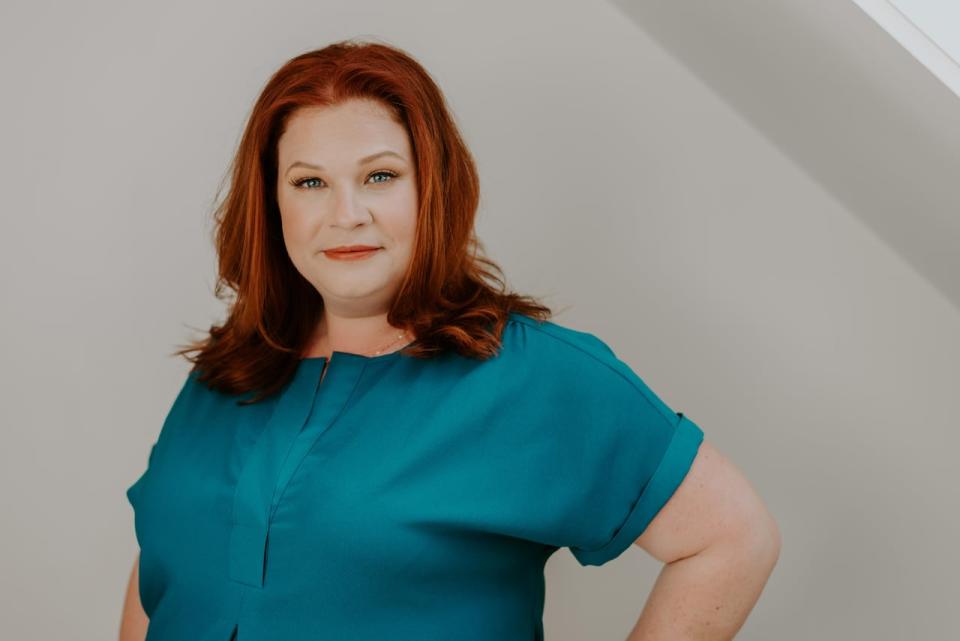P.E.I. program to reduce workplace sexual harassment will go on, despite no federal funding

A P.E.I. project will continue to encourage people to talk about workplace sexual harassment, despite federal funding for the program coming to an end.
The Shift project, run by the P.E.I. Human Rights Commission, began in 2019. It was inspired by #MeToo, the global social awareness campaign against sexual abuse and harassment.
The federal Department of Justice funded the program for five years, but that support came to an end this spring.
Even so, the project's manager said the provincial human rights commission will continue to fund the Shift workshops because of how prevalent the problem is in Island workplaces.

Sexual harassment in the workplace can be very isolating for those who experience it, says Sarah Denman-Wood, the Shift project manager at the P.E.I. Human Rights Commission. (Submitted by Sarah Denman-Wood)
"It was very clear from the calls that the human rights commission was getting that sexual harassment in the workplace is a problem in P.E.I.," Sarah Denman-Wood told Island Morning host Mitch Cormier on Tuesday.
"Part of the goal of the Shift project was to make people aware, to prevent it."
In 2021, Shift launched an anonymous survey on workplace sexual harassment that saw over 1,600 Islanders respond, about four times as many as organizers had been expecting.
Of those who filled it in, 1,035 said they had experienced sexual harassment in the workplace.
While many came forward with examples of what they had experienced, 124 people preferred not to say anything for fear of reprisal, though organizers had guaranteed anonymity.
The Shift workshops were mostly offered virtually for the first couple of years due to the pandemic, but Denman-Wood said it became clear, when in-person workshops began, that people were more eager to speak out in that format.
"We started tailoring it to … whatever workplace I was going into," she said. "What had happened there … what were their concerns, what were their specific worries about how to report it, should they report it, where do they go?"
'You are not alone'
While the human rights commission awaits word on whether more funding for Shift will be available, it hopes to continue offering those in-person workshops.
Above all else, Denman-Wood hopes Islanders continue to talk to someone about any sexual harassment they experience at work.
"You are not alone, and that's a big issue when it comes to sexual harassment," she said. "It can be so isolating, and when we don't talk about the things that are bothering us, that are upsetting us, they grow."

